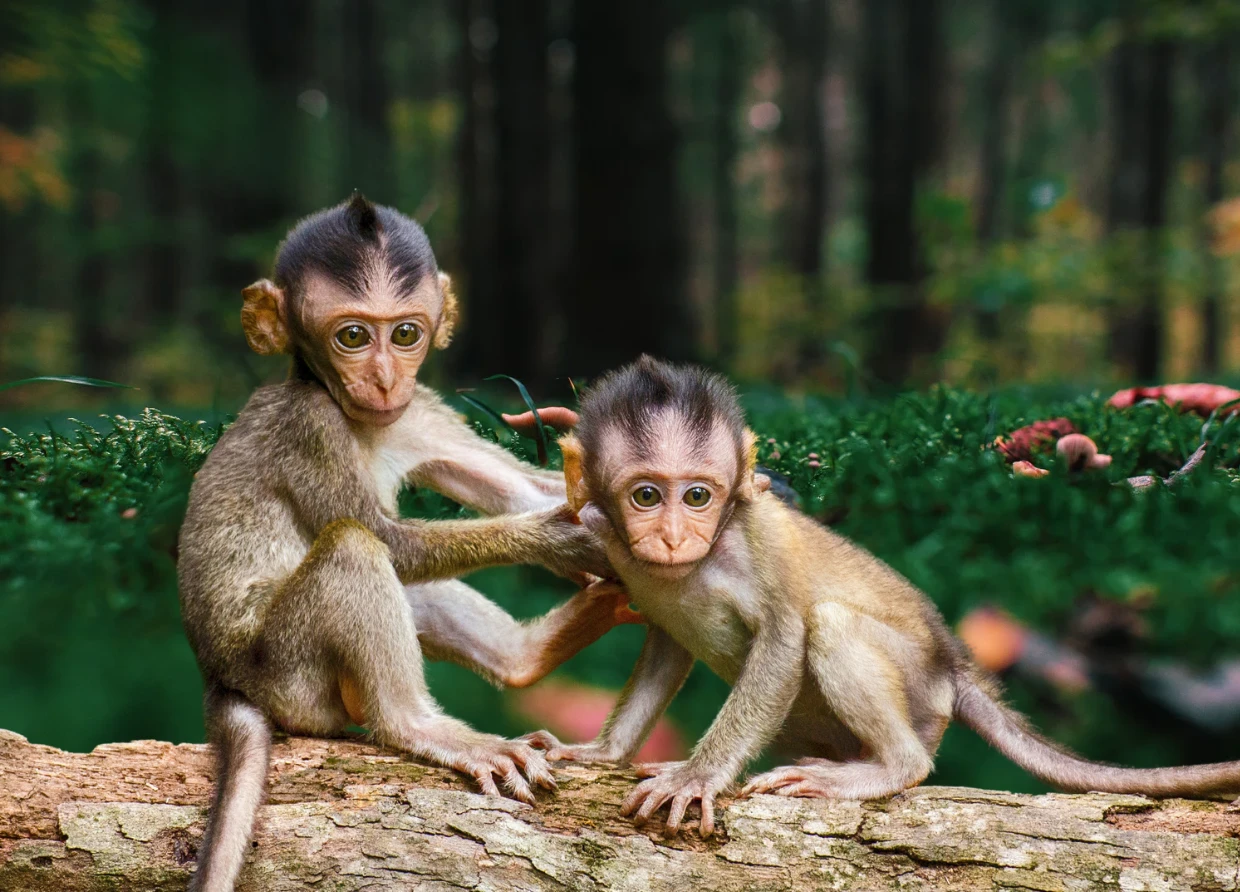WARNING TO BALI TOURISTS: MISCHIEVOUS MONKEYS STRIKE AGAIN
Monkeys Gone Wild: Bali Tourists Face Passport Perils and Health Risks

Tourists visiting the picturesque island of Bali are being reminded once again to exercise caution when encountering the wild and semi-wild monkeys inhabiting popular attractions such as the Sacred Monkey Forest in Ubud, the Sangeh Monkey Forest, and Uluwatu Temple.
A recent video circulating online has captured a shocking incident at the Sacred Monkey Forest. The footage shows a monkey tearing up a tourist's passport after pilfering it from her bag. Despite the woman's attempt to retrieve the document, the agile primate swiped at her, leaving her passport in tatters.
This unfortunate event is not an isolated incident, as monkeys in Bali have been known to damage or steal high-value items from unsuspecting tourists, prompting authorities to issue repeated warnings and implement strict guidelines.
The monkeys in these popular venues, known for their calm demeanor, have developed street-smart tactics. Remaining quiet and composed, they attract tourists, allowing them to seize opportunities to snatch food or valuable items. The monkeys are then often bribed with food to relinquish their stolen treasures.
Tourists are advised to enjoy observing the monkeys from a distance and take preventative measures to safeguard their belongings. Leaving valuables in accommodation safes, zipping up bags securely, and refraining from bringing food into monkey-inhabited areas are crucial steps.
Southern Cross Travel Insurance has reported around AUD 17,000 in claims related to monkey-related incidents in Bali, ranging from thefts of high-value items to monkey bites. Some incidents occurred at the Sacred Monkey Forest and Uluwatu Temple, emphasizing the need for precaution.
Despite regular vaccinations against rabies for the monkeys at the Sacred Monkey Forest, tourists are urged to be vigilant and updated on travel vaccinations, including rabies, before visiting Indonesia. In case of a bite or scratch, immediate medical attention is essential, even if the skin is not broken.
The troubling interactions with monkeys have prompted World Animal Protection to assert that there are no ethical animal tourism venues in Bali and Lombok. An undercover investigation by the organization revealed that interactions with wildlife and domesticated animals at tourism facilities in the region fall short of high welfare standards.
As tourists continue to flock to Bali's enchanting landscapes, the plea for responsible wildlife interaction remains critical to ensure both human safety and the well-being of the island's diverse wildlife.
#THE S MEDIA #Media Milenial #Bali #Tourists #Monkey Forest #Wildlife Interaction #Travel Safety #Passport Theft #Animal Welfare #Rabies Risk #Southern Cross Travel Insurance #World Animal Protection #Responsible Tourism #Uluwatu Temple #Sangeh Monkey Forest #Sacred Monkey Forest #Health Precautions #Monkey Bites #Ethical Tourism #Travel Vaccinations #Wildlife Conservation


























